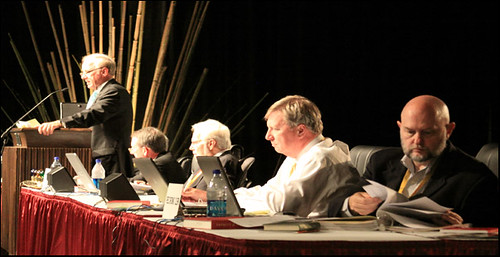 We’ve all been to meetings in which we were bored to death. Meetings can also be frustrating and seem like a total waste of time.
We’ve all been to meetings in which we were bored to death. Meetings can also be frustrating and seem like a total waste of time.
At my church, I have a friend named Art Stump. He is on our Church Admin team, plays keyboard in our band, and is a regional manager for Kitchen Collection.
He has a knack for making meetings interesting, profitable, and fun. So, I asked him, what are the most important things you’ve learned about leading a meeting?
He answered by giving 5 suggestions. They are worth thinking about and implementing.
Here’s what he wrote.
Art Stump: In thinking about leading meetings I tried not to necessarily consider “textbook” types of things. Instead I wanted to focus on things I believe I learned through the process of both leading meetings and, probably more so, sitting through meetings. I’m not saying I discovered any of this on my own, nor that I haven’t read and studied meetings, just that I thought mostly about what I’ve experienced myself.
So, here’s my list of 5 things I’ve learned about leading meetings. (This isn’t a Top 5 so there’s not a particular order to them):
- Attitude. Agenda. Action. I lumped these all together. The leader has to be positive, enthusiastic, and upbeat about the meeting. A well-planned meeting will always be more successful. Follow up is important to demonstrate to the participants that their time is important, productive, and meaningful.
- Don’t confuse straying with spontaneity. You want to allow space for discussion, letting the meeting progress, but you also need to stay on course. An issue or topic might be extremely important but that doesn’t mean it should be a part of that particular meeting.
Continue reading “How Not to Bore People to Death with a Meeting”

 Most people are concerned about their own interests, and it is hard for any of us to think much beyond them.
Most people are concerned about their own interests, and it is hard for any of us to think much beyond them. Here’s a suggestion for you who are parents or will be. Keep a journal of what your children do. If you have a bad day, write about it. If they do something that makes you particularly happy, write about that, too. I would especially suggest this if you have several children.
Here’s a suggestion for you who are parents or will be. Keep a journal of what your children do. If you have a bad day, write about it. If they do something that makes you particularly happy, write about that, too. I would especially suggest this if you have several children.